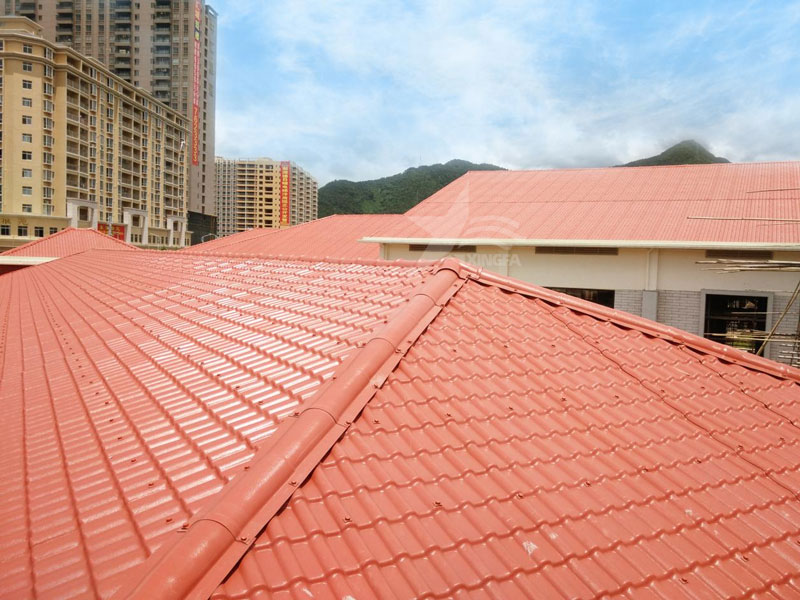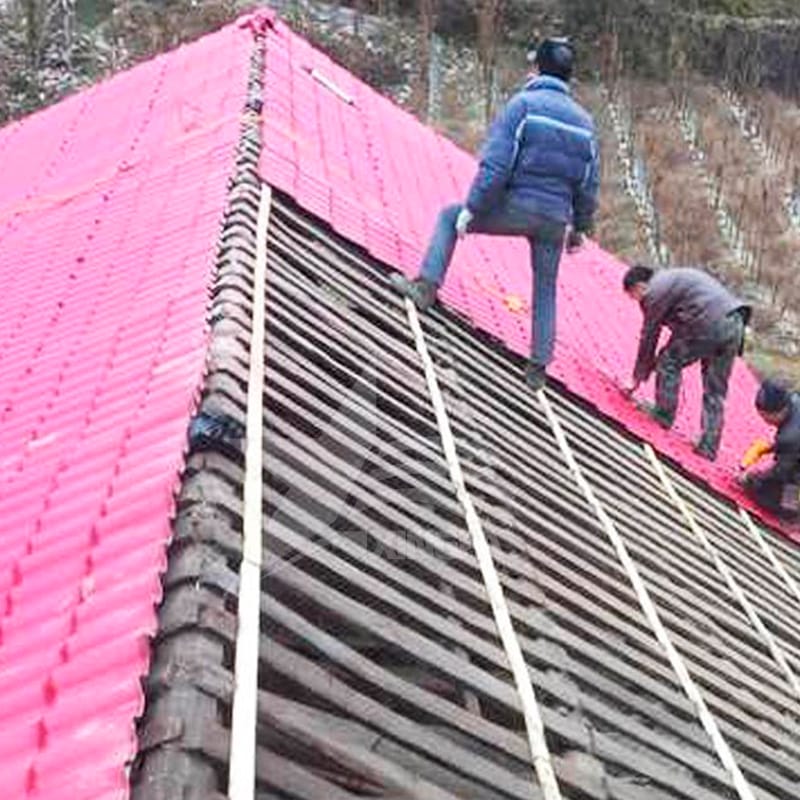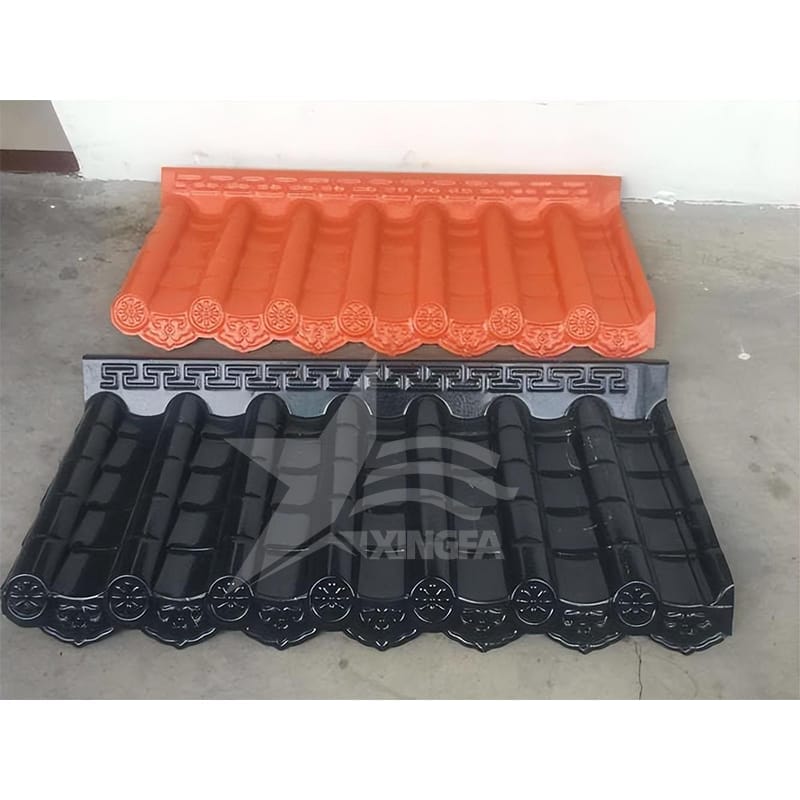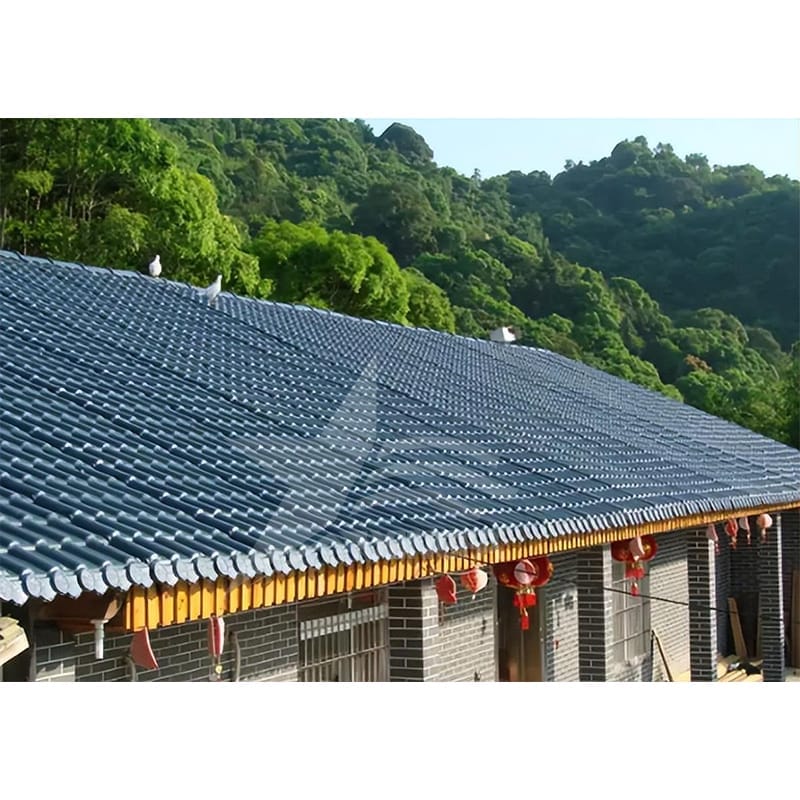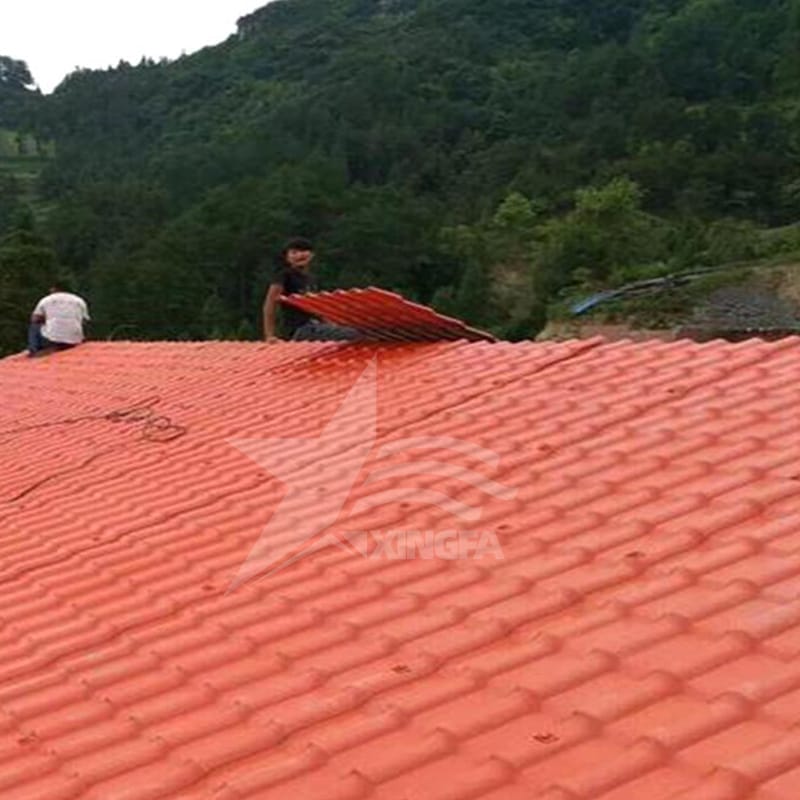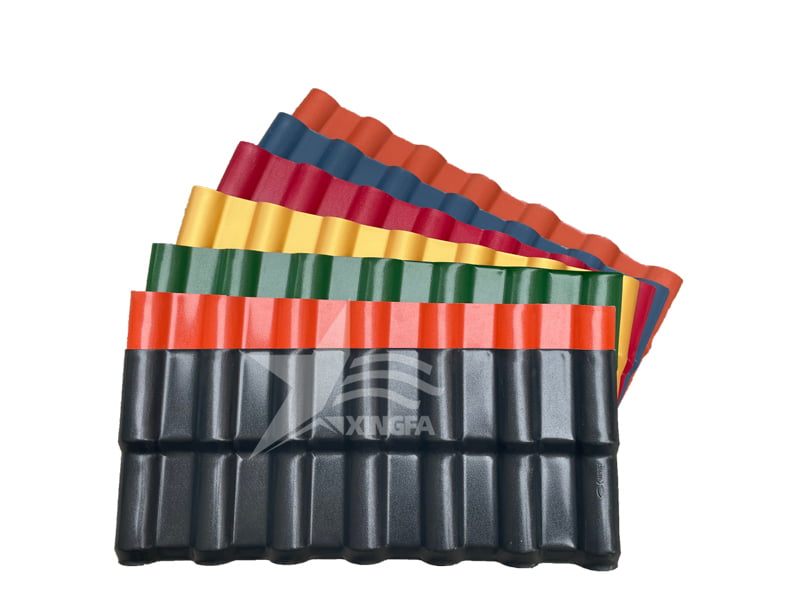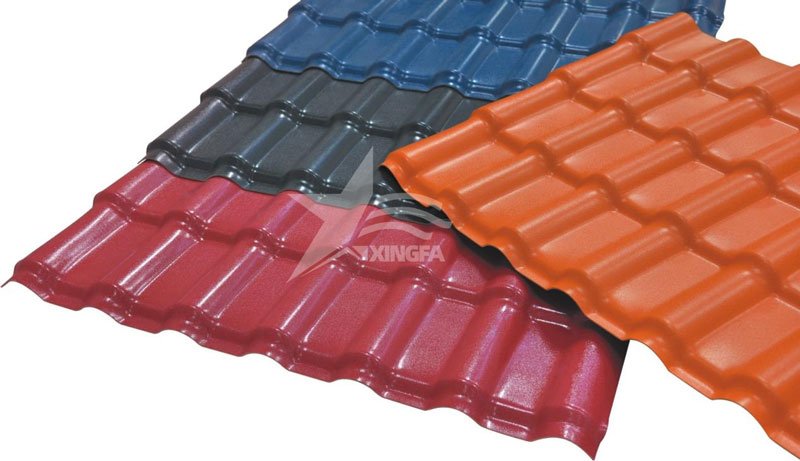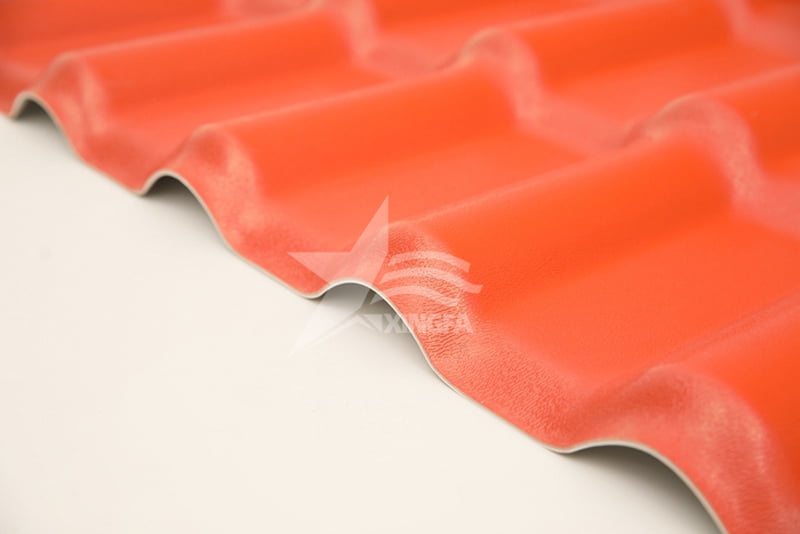Synthetic resin tiles have been widely used in the construction industry due to their excellent performance. However, many people still have doubts about how synthetic resin tiles perform in high-temperature environments. So, how much heat can synthetic resin tiles actually withstand? Let’s explore this further.
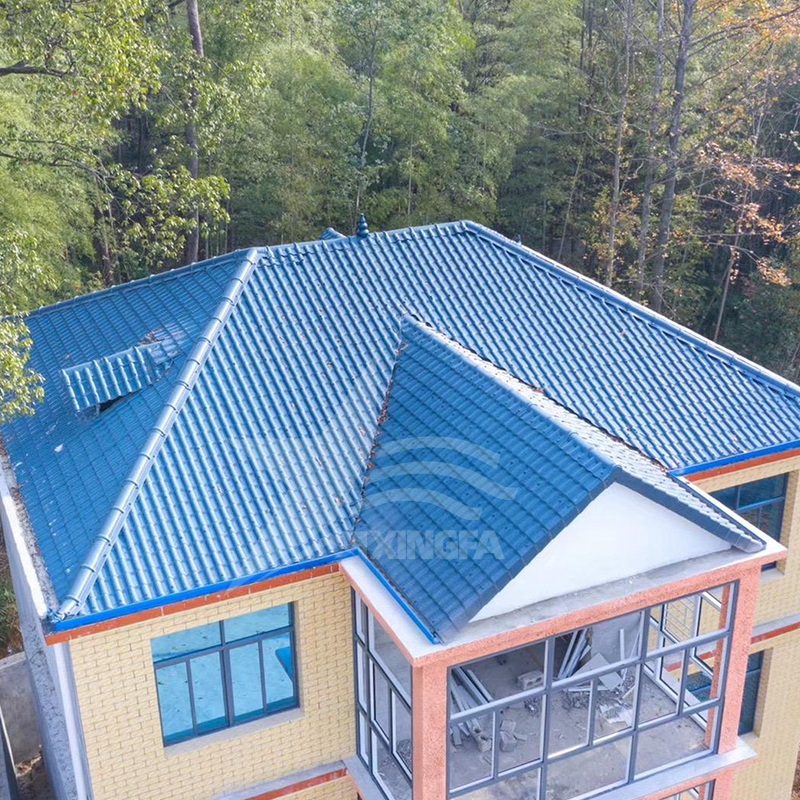
Synthetic resin tiles are a type of composite material made by mixing polymer resins with fiber materials such as fiberglass. This structure gives synthetic resin tiles characteristics such as lightweight, strong weather resistance, and good insulation properties, but their performance in high-temperature environments is somewhat limited.
Generally, the high-temperature resistance of synthetic resin tiles is related to the type of polymer resin used. Common polymer resin materials include polypropylene, polyvinyl chloride, and polyester. Among these, polypropylene is often used in the production of synthetic resin tiles because of its high heat resistance.

Based on relevant research and practical application experience, the high-temperature resistance of synthetic resin tiles is typically between 50°C and 70°C. Within this temperature range, synthetic resin tiles can be used normally without significant performance impacts. However, when the temperature exceeds 70°C, the performance of synthetic resin tiles starts to decline, leading to potential issues like deformation, discoloration, and increased brittleness. Therefore, in high-temperature environments, it is important to control the temperature to avoid exceeding the tiles’ heat resistance range, ensuring their normal use and prolonging their lifespan.
